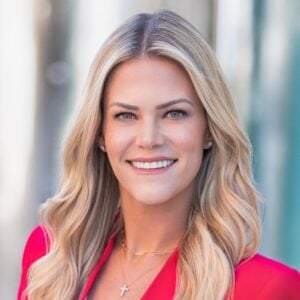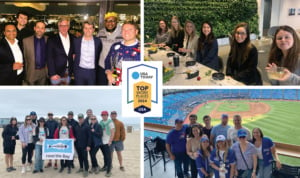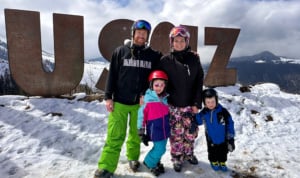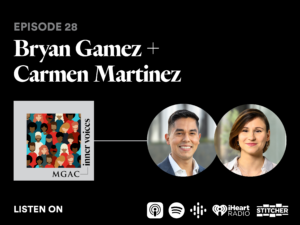MGAC Impacts: Mark Muchmore on Powering Tomorrow’s Data Centers, Traveling, and Marking 13 Years with MGAC
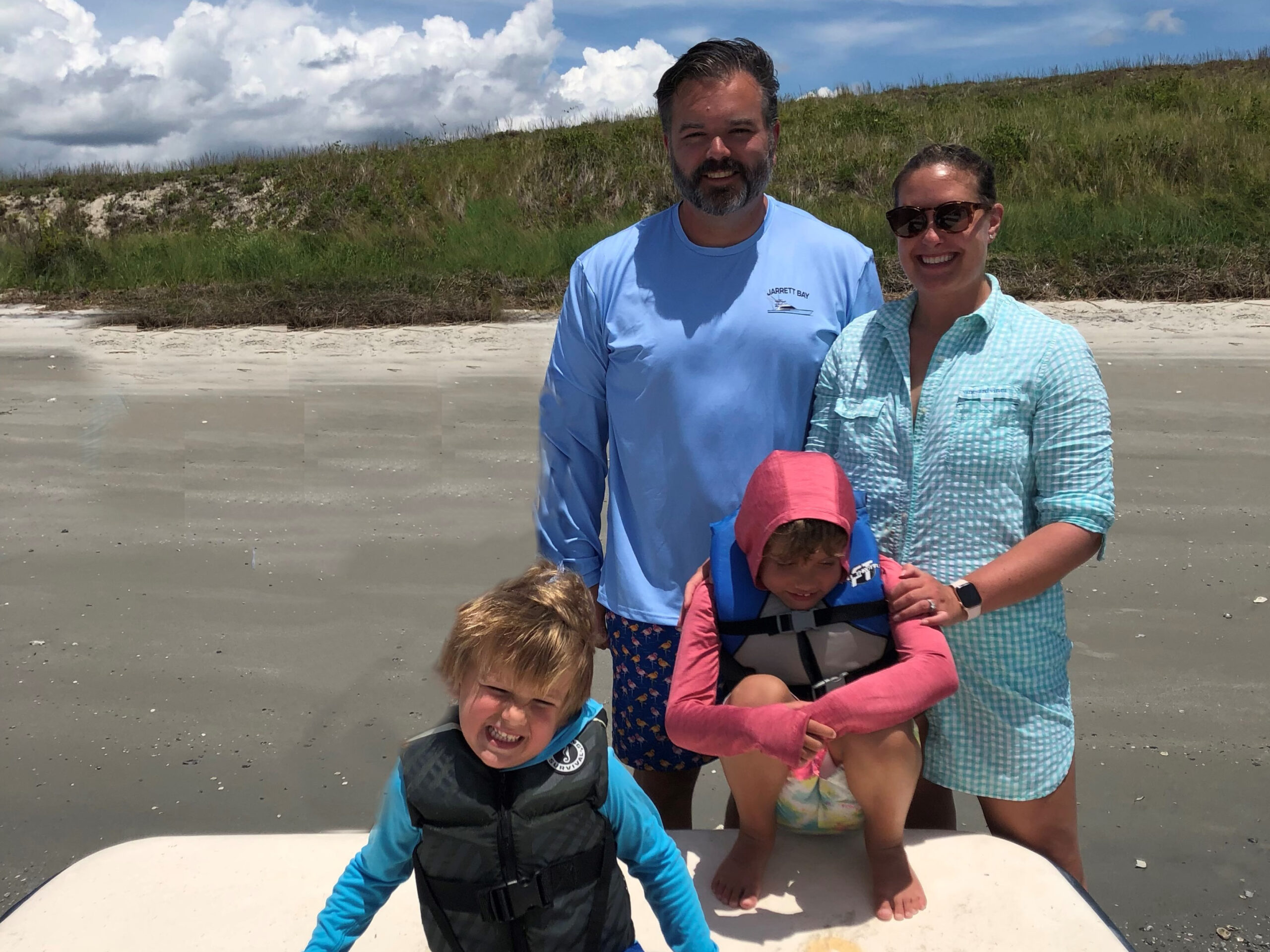
The Impact Blog is a spotlight series that highlights and celebrates the diverse employees that make MGAC tick. Beyond their day-to-day schedules, we want to know how they have a greater impact on their colleagues, their company, and the communities in which they live and work. We want to know what makes them get out of bed in the morning, what led them to their current role, and what they hope their lasting impact will be.
Today, we get to know Mark Muchmore, Senior Vice President at MGAC.
—
MGAC: Welcome to the Impact Blog, Mark!
Mark Muchmore (MM): Hi, thanks for having me.
MGAC: What is your title? Describe your role at MGAC in your own words.
MM: I’m one of the Senior Vice Presidents with our Critical Environments team. I’m responsible for client management on a few of our major programs across the country, as well as general oversight of our team members who are managing projects, whether they are onsite or remote. I do a fair amount of travel. As a whole, our team has active projects in Virginia, Florida, Texas, Ohio, and Georgia. But we’ve done work in other cities as well.
MGAC: How long have you been with the firm?
MM: It will have been 13 years this Fall.
MGAC: Congratulations! Tell us how you found your way here 13 years ago.
MM: I started my career in Washington, DC working for Davis Construction, and then I got a security clearance and went to work for a defense contractor. Around the time I started work for another defense contractor, I was introduced to MGAC through friends. I was really interested in the company, but they didn’t have pertinent openings at the time. But three months later, they reached out and asked if I was still interested. I certainly was, but at that point, I had only been with my new job for three months. But something about MGAC really appealed to me. Even though it felt like a bit of a risk to make the switch, something told me that it was the right choice long-term.
MGAC: You must have seen a lot of growth in the time you’ve been with MGAC.
MM: Absolutely. When I joined, MGAC had 80 to 90 employees between the DC and Seattle offices. We had a large contract with the FBI, which I was a part of for four years. I then had the opportunity to transition to the Critical Environments team, where I am today.
MGAC: Can you share more about the Critical Environments sector? What kind of work does your team do?
MM: We’re primarily in project management, helping clients hire other consultants and contractors. Some of our current projects are also in need of cost and schedule management. In such cases, we’ll work with other MGAC teams to bring in those functions. Our major clients are data center clients, some of those being what we call large, hyper-scale clients. These are often household-name tech companies, and the like. If it’s a facility that has to operate 24/7, we’ll probably be involved in it. Some of our clients are developers, who operate similarly to any other type of developer. These companies build data centers that others can lease space from. In principle, it’s similar to any other type of lease deal. However, the types of facilities are very large. They could be hundreds of thousands, even millions of square feet, and require significant power and cooling. That’s primarily what drives the high cost of building data centers: the amount of electrical and mechanical work, and related equipment, that goes into them.
MGAC: Given the size of these facilities, is their location driven by land availability?
MM: Generally speaking, from a site-selection standpoint, a lot of clients want to build where there’s a high capacity of utility available. That’s why Northern Virginia is a popular market. Columbus, Ohio, is becoming popular as well. And once a market becomes known for having a lot of power available and good connectivity, it can become a hotspot for data center activity. Sometimes it’s a remote location, which is helpful because the land is cheap. But it’s primarily driven by power and access to their networks.
MGAC: Interesting! You noted you started out in construction—was that a pathway you envisioned following when you were younger?
MM: I always liked architecture; when I was a little kid, I was always drawing and building things. My mom was a real estate agent, and I loved looking at the floor plans she’d bring home. But I went on to attend a small liberal arts college that didn’t have that program. A family member who worked in the construction industry in DC told me I didn’t necessarily need a degree in architecture to work in that area after college, recommending I get a business degree and start out working for a general contractor instead. I followed that advice!
MGAC: And here you are today! What might that kid think about where you’ve landed?
MM: To some degree, what I do is pretty different from what I would have expected. While data centers were a necessity to businesses at the time, they weren’t their own industry like they are now. I could never have imagined that.
MGAC: Good point!
MM: A lot of people, good or bad, don’t realize that data centers and that technology are as much of a utility to us as power and water. And that’s driven the demand for them—something our team sees with each passing day.
MGAC: And as demand grows, is the world of data centers evolving?
MM: To some extent. There are companies out there constantly pushing the envelope to pursue new technology that is more cost-effective, more efficient, etc. But there are also companies that, while not adverse to change, need to be a reliable resource—in other words, they are not going to go out and adopt every new technology without fully vetting it first. There are also companies doing a good job of exploring new technologies in order to be more sustainable from an energy and water use perspective. They’re thinking of ways to be more efficient when it comes to construction, by scaling back the use of resources and cutting down the cost of building.
MGAC: What projects are keeping you busy these days?
MM: We’ve started a recent project with a utility company in Florida. It involves building a new 150,000 SF command center for regular operations. But in the event of a hurricane or other significant natural disaster, it can be used as an operational facility where employees can live while they work in shifts to monitor and maintain the power grid. We recently kicked the project off, and plan to wrap it in 2025.
MGAC: You mentioned some of your current projects involve working simultaneously with other MGAC teams?
MM: That’s right. We’re also supporting a large program with a major tech company across multiple sites nationwide. That project is presenting an opportunity for other teams within MGAC to get involved, specifically our scheduling and cost teams.
MGAC: It must be exciting to see that kind of growth, and to collaborate with other teams on a shared client. When you think bigger-picture about your role at MGAC, what impact do you hope to have?
MM: I’ve been fortunate to have played a part in MGAC’s growth, particularly in the last five to eight years. Helping a company that has been so influential on your own career evolve has been endlessly rewarding.
MGAC: And for all the evolution you’ve seen, what’s stayed the same at MGAC?
MM: There’s still a strong entrepreneurial spirit that drives the company. People are encouraged to pursue things they’re interested in, and are given the opportunity to do so. That’s one of the first things I was attracted to at MGAC, and it remains true to this day.
MGAC: No doubt you’ve faced challenges on the job in your time with MGAC. What stands out?
MM: Many of our team members travel for work, which can be a challenge. It requires balancing family life at home with client relationships and the need to have that face time. For any of us in this industry, it’s something to be mindful of. MGAC does a great job of helping us strike a balance. But having supportive families is a huge part of our team’s success—and MGAC’s success as a whole. When we talk about our own success, it’s our families who truly deserve a lot of credit.
MGAC: Has experiencing that challenge firsthand influenced your management style today?
MM: Absolutely. I remember when I was planning to shift from the FBI contract to this team, my manager at the time told me I needed to have a conversation with my fiancée (now wife) to ensure it was okay with her, not just me. Today, we still try to have that conversation with anyone coming into the team who will be a traveler.
MGAC: How do you hope your work will impact your community at large?
MM: Although data centers are not the most attractive buildings, they are a utility that the world relies on more and more. At the same time, they present a unique opportunity to move the world forward. For example, we have a client who is trying to develop data centers on the campuses of historically black colleges and universities—something that hasn’t really been done before, but presents great opportunities. The idea is that the college will have space for its own administrative functions, research, etc. But there is also space available that other companies could lease. In some markets, they are talking to companies about leasing space, which opens opportunities for collaborative tech sharing and networking with students.
MGAC: That’s amazing.
MM: It’s enriching to work with clients like this who, even in a financially driven industry, are trying to find ways to work with local communities in a way that provides benefit.
MGAC: What at MGAC has made an impact on you?
MM: That here, you have the opportunity to pursue your interests and make something that you want, knowing the possibilities are endless. That is an exciting prospect when you join a company, and it gives you a powerful motivation that only grows over time. I would know! All these things have made the last 13 years go by pretty quickly.
MGAC: What have you found most rewarding about your job?
MM: Seeing our team grow as a part of MGAC as a whole. And, more specifically, to have had an opportunity to be a part of that. When I joined the team nine years ago, it consisted of maybe 10 people. Today, we’re in the mid-30s. I’ve really enjoyed being able to interview candidates and figure out how to help and mentor the individuals who come into our team.
MGAC: What gives you energy?
MM: Having a good work-life balance that allows me time to spend with my family. We have two boys, and we love to travel, and just spend time together. We’ve also got two dogs, one of which is a young puppy, so we’re constantly playing in the yard and going on walks together. Having that break and quality time every now and then gives me energy to be my best self at work.
MGAC: What do you want your lasting impact to be?
MM: I think the most important thing is to have a good family and raise good children who go on to have a lasting impact of their own. Certainly work is important, but your family—the kind of people you raise as children who will one day become adults—is the most important thing of all.
MGAC: Well said! To close out our chat, we have a few rapid-fire questions for you to answer.
MM: Okay!
MGAC: How do you start each workday?
MM: If I’m at home, by going upstairs to my office. If I’m traveling, heading to a client site. From there, I always begin by checking my schedule for the day.
MGAC: What’s the last thing?
MM: I guess turn off my computer!
MGAC: What’s something unique we’ll always find in your desk or work bag?
MM: I keep my Kindle with me—I always try to read while traveling or on an airplane.
MGAC: What’s a go-to weekday lunch?
MM: Grilled chicken with avocado and cheese and a salad.
MGAC: Yum. What’s the most used app on your phone?
MM: The Kindle app.
MGAC: Describe your job in 5 words or less.
MM: Helping people achieve their goals.
MGAC: What’s something your colleagues don’t know about you?
MM: Most people don’t know I played piano through high school. My parents were very artistic and musical. Despite trying, I didn’t quite end up that way myself!
MGAC: What’s your biggest work goal for 2023?
MM: Continuing to integrate our team in new and innovative ways within MGAC. That’s an active and exciting evolution right now, and we’re thrilled to carry it into the new year!
